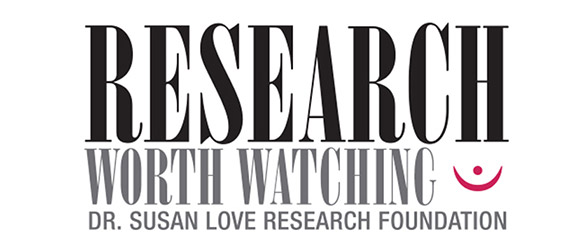
The discussions and arguments about the use of hormones to get women through menopause were a prominent part of my early career. To help women understand the reasons for the debate, I wrote a book about menopause and hormones in 2003. Because I was questioning authority, Malcolm Gladwell pilloried me in the New Yorker (The Estrogen Question: How Wrong is Dr Susan Love?).
During the 1990s and early 2000s, women were told that they needed to take menopausal hormones—then called hormone replacement therapy (HRT)—because once they entered menopause they were “missing” hormones that needed to be replaced. If you replaced them, the hypothesis went, women could prevent diseases of aging, like heart disease and bone fractures. I, along with other women’s health advocates, was concerned that women were being told to “replace” hormones they were meant to lose, and that taking hormones might increase a woman’s risk for breast cancer.
In 1993, Bernadette Healy, MD, the only woman to ever head the National Institutes of Health, launched a randomized controlled study, The Woman’s Health Initiative (WHI), to answer the question. The WHI enrolled 27,347 women. Women with a uterus were randomized to either estrogen and progestin or a placebo; women who had had a hysterectomy were randomized to estrogen or a placebo. The study that randomized women to estrogen and progestin or a placebo was stopped prematurely after 5.6 years, when early data showed an increased incidence of breast cancer in the women on hormones. The estrogen-only study was prematurely stopped about two years later. We all need to be grateful to the generous women who were willing to be randomized to participate in the original study, which demonstrated that menopause was natural and did not necessarily have to be treated!
Wisely, the researchers continued to study the women who were in the WHI. This has allowed us to learn whether there were any long-term consequences of taking estrogen and progestin for 5.6 years or estrogen alone for 7.2 years. The most recent analysis was published on September 12, 2017, in the Journal of the American Medical Association
The findings should be reassuring for the women who used menopausal hormone therapy to help them manage the hot flashes and other symptoms of menopause. Bottom-line: If you are between ages 50-59, it’s OK to take menopausal hormones for a short time. Your overall risk of dying over the next 18 years is the same whether or not you take them. Since the WHI study was stopped, there is no data on whether it is okay to stay on these hormones long term, which is what was initially recommended. (Fewer than 4% of the women in the WHI study continued to take menopausal hormones after the researchers stopped the study.)
The new analysis, which looked at all causes of death as well as specific diseases that led to death, showed that short-term use of hormones will not increase or decrease a woman’s risk of heart disease or dementia. (There had been concerns about both.)
The women who took the placebo and the women who took the hormones were equally likely to die of cancer. However, the women who took estrogen and progestin had an increased risk of being diagnosed with breast cancer. This finding supports previous research that has showed adding a progestin to estrogen reduces the risk of uterine cancer while at the same time increasing breast cancer risk.
The findings from this new analysis support the current practice guidelines, which endorse the short-term use of menopausal hormone therapy for women who have started going through menopause and have moderate to severe symptoms. Long-term use may still be a problem and is not addressed in this study. There is no evidence that long-term use of menopausal hormone therapy will reduce the risk of chronic disease or death. (Some of you probably still recall the advertisements touting hormones as the “fountain of youth” that would provide this benefit.)
We all owe a debt to Dr. Bernadine Healey, who had the foresight to launch the Women’s Health Initiative. We also owe our gratitude to all the researchers who made it happen and the women who participated. Because of them, the risks and benefits of short-term menopausal hormone therapy have been clarified, allowing the current generation of perimenopausal women to make informed decisions about their health.
